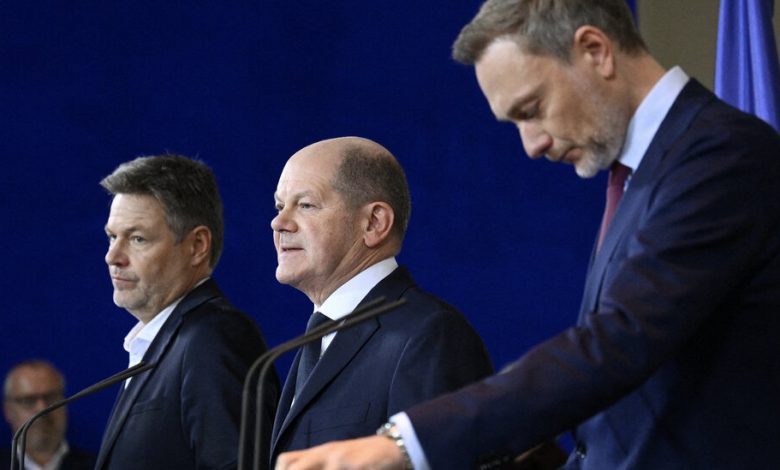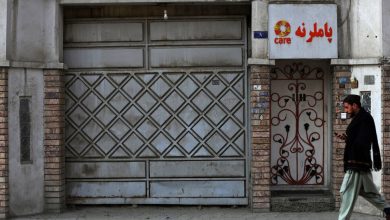Germany Freezes Government Spending as Budget Crisis Deepens

The Latest
The German government said on Tuesday it would immediately halt all new spending as it grappled with how to plug a gap of tens of billions of euros following a court ruling that has triggered a budget crisis in Europe’s largest economy.
The Constitutional Court, Germany’s highest, ruled last week that Chancellor Olaf Scholz’s government had acted improperly by taking money borrowed in 2020 to combat the coronavirus pandemic and shifting it to a new fund to finance environmental projects and green technology. The sum amounts to 60 billion euros, or $64.6 billion.
The ruling has not only undermined those environmental projects and investments, but has thrown the country’s overall spending plans into disarray.
The court decision has also strained Mr. Scholz’s three-way governing coalition, pitting the economy minister, a member of the Greens who favors spending to spur the economy, against the finance minister, from the more fiscally conservative Free Democrats.

German Chancellor Olaf Scholz, center, with Robert Habeck, left, the economy minister, and Christian Lindner, the finance minister. Credit…Annegret Hilse/Reuters
What Is Affected: No funding pledges for next year.
The halt in new spending authorizations applies to all ministries. It also covers a special fund of about €200 billion that was set up to support companies in the aftermath of the pandemic and the energy crisis ignited by Russia’s war in Ukraine.
“We are not talking about a shutdown like in the United States,” said Christian Hasse, a budget expert for the center-right Christian Democrats. “But it means new commitments can’t be made, except under exceptional circumstances.”
The freeze will be in effect through Dec. 31, the Finance Ministry said.
Why It Matters: The “core substance” of the economy is at stake.
The economy minister, Robert Habeck, issued a dire warning of the ruling’s impact, even as Mr. Scholz raced to work out a solution.
“The core substance of the German economy is at stake,” Mr. Habeck said Monday in an interview with German public radio broadcaster Deutschlandfunk.
Economists warned on Tuesday that the ruling could dent economic growth next year. The German economy is already expected to contract in 2023, dragged down by flagging industrial production and high inflation.
“We are not yet able to see in detail what the impact of these fallouts could be, but it means that we will not be able to count on gross domestic product to grow next year,” Michael Hüther, director of the Cologne Institute for Economic Research, told a parliamentary committee.
What’s at Stake: Leaders warn investment is needed.
Among the spending commitments that could be threatened are billions in subsidies aimed at attracting new industries to Germany, such as the chipmakers Intel and TSMC.
The chancellor and Mr. Habeck have insisted that the ruling would not affect those commitments.
The pledges were made to help Germany transform its industrial sector from heavy industries to green technology, aimed at helping the country meet its goal of carbon neutrality by 2045.
Background: Germany’s controls on government debt.
In 2009, Germany imposed strong borrowing limits on itself. The so-called debt brake, written into its Constitution, restricts annual borrowing to 0.35 percent of gross domestic product, or roughly €12 billion a year. Exceptions are allowed in emergencies, including natural disasters or a pandemic. The court ruled that the €60 billion, borrowed during the pandemic, could not be used for purposes unrelated to the spread of Covid.
Germany is the only leading industrial economy to have such stringent controls.
What Happens Next: The 2024 budget is in question.
Lawmakers were expected to pass Germany’s 2024 budget last week. But after the ruling effectively ripped a $64.6 billion hole in this year’s spending plan, the talks were postponed pending a solution.
The coalition partners are aiming to reach a solution by the end of the week, Bloomberg News reported.





